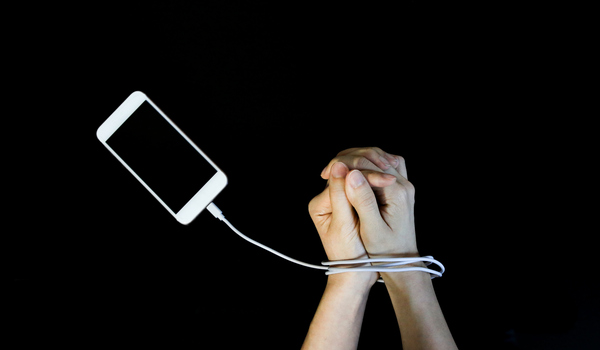Is It Time for a Digital Hiatus?

Almost 90 percent of Americans use social media. For most users, it’s a way to keep tabs on friends and acquaintances. One of the perks is being able to share, to a small degree, in special events and milestones of friends who no longer live close by. However, there may be better reasons for taking a hiatus from social media. I’ve been off Facebook for almost a year and can honestly say that, while I don’t miss it, I do enjoy getting updates through my still-connected spouse.
Here are three considerations to help you determine whether you’re due for a digital retreat.
1. How many friendships can you maintain effectively?
Psychologically, there are limits to how many friendships we can maintain. Dr. R.M. Dunbar, a professor of psychology at Oxford University, says that “we can only handle about 150 friends, including family members.” At that point our relational energy taps out. The two constraining factors, according to Dunbar are the neocortex, the part of our brain that manages relationships, and time.
Within our social networks are inner circles that require a certain amount of time to maintain based on your level of commitment to those relationships. According to Dunbar, those in our social core require at least five minutes weekly to keep healthy. Our next circle of friends needs five minutes once a month (that’s 25 minutes per day to maintain 150 online friends), while to maintain acquaintances needs only an annual interaction.
Knowing this can help you decide your level of interaction and how many “friends” you should have. One user confessed that taking time off provided an opportunity to “figure out what friendship means” and to reevaluate and strengthen other relationships.
2. Determine your purpose for using social media.
Establish a specific use for social media in your life and restrict it to that purpose. As I’ve already pointed out, a majority use it to keep in touch with people with whom they have some connection. In other words, use it as a tool instead of a toy.
Some who have returned after a hiatus did so because they wanted to be more involved in their friends’ lives. Others found social media helpful in advancing their careers, using it to keep up with the latest developments in their fields.
More importantly, those who take a hiatus often resist the temptation to “nosedive” back into social media. They limit themselves to posts, comments, and what they share about themselves. To further limit their time on social media, they purposely do not have any social media apps on their phone and only engage when on their computers at home.
Without a purpose, it’s easy to slip down the social media rabbit hole and end up going places you never intended. People often go to bed thinking to take a few minutes to scroll, only to end up commenting on a friend’s post, checking on a friend suggestion, checking out an article that sends you into a research spiral, and before you know it, your brain is in hyperdrive.
3. Avoid the problems with social media.
Research has discovered multiple risks that come with social media depending on individual involvement. Considering our relational limits, it has been observed that online connection drains our energy for in-person interaction. A recent Healthline article indicated that people who take time off from social media make more personal calls and send texts to friends. The author asked, “What if every like, heart, and reply we give to someone on the internet is actually taking away from our energy for offline friendships?”
Former Facebook executive Chamanth Palihapitiya stirred things up when she said, “I think we have created tools that are ripping apart the social fabric of how society works…eroding the core foundations of how people behave by and between each other.” Social media has fueled much of the division we see in America. People unfriend each other for disagreement over political issues. They get offended and hurt because their pics did not receive adequate likes. M.J. Crockett, a neuroscientist, says, “People may feel compelled to express outrage online because they receive positive feedback for doing so.”
Research about the negative effects of social media indicates an “increase in depression, anxiety, and feelings of loneliness” among young adults (according to a 2016 study published in Computers and Online Behavior). Author Jean Twenge says today’s “super-connected kids are growing up less rebellious, more tolerant, less happy, and completely unprepared for adulthood.”
* * *
If you’ve been upset recently because of your interaction on social media, or if you’ve upset someone else, if you find yourself looking at your phone for no apparent reason, if you’ve blocked someone for disagreeing with you, or even found yourself spending way too much time on it, then it’s time for a digital retreat.
I totally concur with Dr. Dunbar who said, “Friends exist to provide us with shoulders to cry on when things fall apart. No matter how sympathetic someone may be on Facebook or even Skype, in the end it is having a real shoulder to cry on that makes the difference to our being able to cope.”